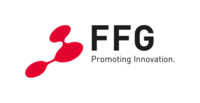Modernizing secondary railway lines and developing an overall concept for a sustainable and climate-neutral train service
Background
The transport sector is one of the main sources of CO2 emissions. Therefore, it is necessary to look for environmentally friendly and sustainable ways of transporting people and freight. Although efforts have already been made to reduce the emissions in the rail sector (to zero emission even), there is still a long way to go. Specifically the secondary railway lines are under pressure. Many have been closed down, are about to be closed down and those that are still operated often use outdated technology. Consequently, it requires innovations and investments to maintain the role of secondary railway lines for regional economy and as feeder lines for the main rail network. Only when secondary railway lines are modernized, they can make a profound contribution to the reduction of greenhouse gases.
Project Content
To raise the attractiveness of secondary railway lines and to turn them into an important player on the way to climate neutrality, investments need to be made. There is room for improvement with regard to the image, the trains, the stations, the schedules, the services and the connection with local companies.
One of these secondary railway lines – the Citybahn Waidhofen – has already been the object of investigation in a pilot study. In search for innovations and new features various scenarios with different engine systems (e.g., diesel traction, hydrogen powered machines, batteries/supercaps) have been developed. The best results had been produced for solutions on the basis of batteries/supercaps. These findings are the foundation for the current project and its aim to set up an emission-free train service for the Citybahn Waidhofen. The insights gained during the project shall be made widely available and serve as a guideline for similar future projects.
Goals
The overarching aim of the project is to provide well-founded arguments for the maintenance and modernization of secondary railway lines. Another issue is the establishment of emission-free train services. An important outcome of the project is a decision making tool. This tool consists of different building blocks that can be reassembled to find the best solution for different scenarios.
The project team aims…
- to raise the appeal of the railway as a means of transportation
- to raise the quality and improve accessibility of secondary railway lines
- to make secondary railway lines more attractive for freight transport
- to introduce sustainable technologies, which help to reduce emissions and energy consumption
- to create a healthier environment through sustainable technologies
- to make rail services more competitive and connect local businesses to the main rail network
- to cultivate competences and international collaboration
Methods
In a pilot study the great potential of battery-hybrid engines – which run on battery on non-electrified sections of a route – has been shown. Hence, in the current project scenarios based on such a technology are considered. The benefits of the technology are a high degree of efficiency and a high charging capacity. To further enlarge the distances that can be covered, charging stations can be erected at the start- and the endpoints of a route and at vital points in between. However, the project team members not only focus on drive technology; they also aim to draw a big picture of a viable overall solution. This includes an operating program for the use case (i.e.,Citybahn Waidhofen), the setup of the railcar, the energy footprint, the proportions of the energy storage systems, the infrastructure for the charging units, and the production and supply with renewable energy. The project team also considers different types of operation programs ranging from the “classic” train service to the implementation of an automatic operating program. Moreover, the overall concept of the project includes other electrically driven means of transport such busses, cars, and scooters and a supply system with emission-free electricity produced on site.
Results
A broad spectrum of measures with the aim to modernize secondary railway lines are evaluated in the current project. This comprises experimenting with new ways of energy storage and provision, retooling the infrastructure for emission-free operation of the train services and embedding the train services in an overall energy concept. Applying them to a real case scenario (Citybahn Waidhofen) is the litmus test for the proposed measures and gives the project ecological validity. The insights gained shall pave the way for similar projects in the future. More precisely, the methods are made widely available to support informed decisions on how to implement climate-neutral secondary railway lines. This bears an advantage for those involved in the decision making processes but also – especially when secondary railways are operated emission-free – benefits the environment.
The research leading to these results has received funding from the Mobility of the Future programme. Mobility of the Future is a research, technology and innovation funding programme of the Republic of Austria, Ministry of Climate Action. The Austrian Research Promotion Agency (FFG) has been authorised for the programme management.
You want to know more? Feel free to ask!
Academic Director Rail Technology and Mobility (BA)
Academic Director Rail Vehicle Technology (BA)
Head of Research Institute
Carl Ritter von Ghega Institute for Integrated Mobility Research
Deputy Academic Director Rail Technology and Management of Railway Systems (MA)
Department of Rail Technology and Mobility
- Molinari Rail GmbH
- Niederöstereichische Verkehrsorganisationsges.b.H (NÖVOG)





